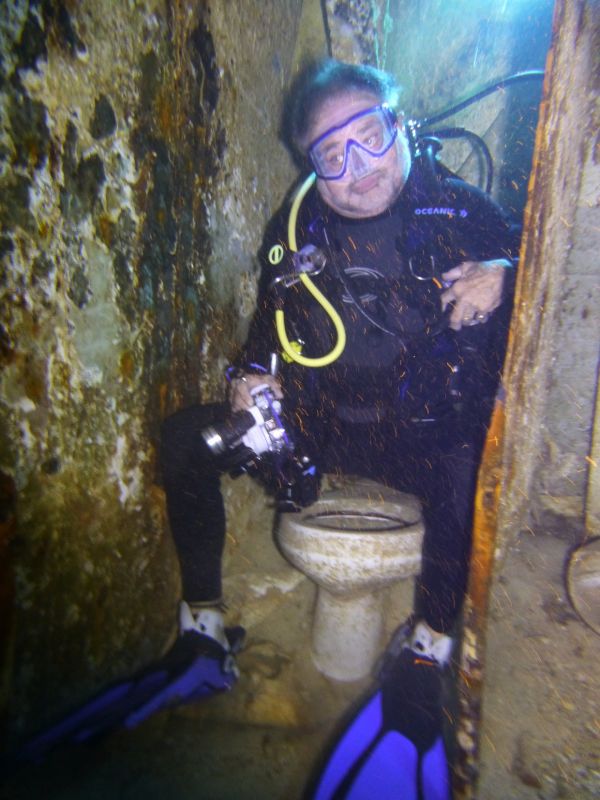Composting toilets
Published on by David W Pressler, Owner President at DRD Enterprises Inc of Davie in Social
Taxonomy
- Composting Toilet
- Water Sanitation & Hygiene (WASH)
- Senior WASH officer
- WASH in healthcare facilities
5 Answers
-
From the reading below I think most folks are not educated about modern composting toilets even one person says they do not process fecal matter? YES THEY DO! Once folks are educated about modern composting toilets their use will become more popular and sewage put into the ground will stop! Sun Mar just one of many composting toilets on the market. ONLY by change can the future be reached!
.
-
They may well seem to be an environmentally friendly alternative but when one is confronted with the social and practical issues and risks associated with this application, it does not appear to be sustainable. Two of the biggest challenges I have observed is the lack of thorough consultation with users, or no consultation, and the fact that the scale of the application is not considered. Composting toilets seem to work well for single household remote locations like a holiday cabin somewhere in the mountains, or a remote farm home, etc, but not for densely populated areas desperate for sanitation services with heavy daily usage.
A waterborne system that can produce effluent that is suitable for returning to flushing plumbing to reduce the demand for drinking water quality to service the flush toilet, is in my opinion a lot more appropriate for areas of heavy usage. Solar can be added as some of the systems have little power requirement, and some even function on natural ventilation to achieve aerobic conditions.
I'm happy to discuss the merits further if necessary, drop me an email
Regards
-
Composting toilets do not compost feces. They serve as a means of collecting feces in a manner that reduces odour by adding a bulking agent (sawdust or wood chips) to allow forced air to pass through and evaporate moisture. By evaporating moisture and passing through oxygen with the air the bacterial action associated with odour generation is reduced. While an advantage of composting toilets is the elimination of the need to use water to transport the fecal material to treatment and disposal, and avoiding the immediate cost of treatment and disposal, the disadvantages are considerable. Firstly, while actual composting also involves adding bulking component of wood chips, and passing air through the mixture, to actually compost and convert the wood and feces to carbon dioxide through aerobic respiration is much more involved, requiring maintaining moisture rather than evaporation, pH adjustment, mixing etc. As a consequence the bulking material added to composting toilets increases the mass of waste that needs to be disposed of in a sanitary manner. This leads to a second disadvantage, while true composting results in internal bed temperatures above 55 degrees C that can denature proteins and reduce pathogenic viruses, bacteria and parasites, the composting toilet does not achieve such temperatures - making the material that has to be removed from a composting toilet a health hazard. A third disadvantage is having to remove, transport and sanitarily dispose and actually treat the collected solids. My expectation is most composting toilet solids are buried nearby and in a cottage or other remote application could affect groundwater quality as a contamination source, and such burial would be illegal anywhere in North America. Then there is the last disadvantage I’ll mention, - Leachate. Humans not only pass fecal matter with variable water content, but they also urinate significant quantities of liquid that exceeds the ability of the composting toilet to evaporate, which generates a highly contaminated liquid leachate at the bottom of the compost that must also be disposed in a legal and sanitary manner. As a consequence, most health jurisdictions that permit the use of composting toilets do so only when a conventional means of sanitary disposal is already available in the firm of a permitted septic disposal system and field, or a sanitary sewer. I design composting systems and also compost waste organic materials in my yard using very conventional methods along with routine mixing, moisture control, pH adjustment using ground waste drywall, and temperature monitoring to achieve rapid decomposition under controlled conditions. However, few people both to go to the trouble of composting properly and end up creating a trash pile for eventual disposal and/or use municipal green bin collection. The chances of the average homeowner operating a composting toilet to actually compost are slim.
-
Yes, most definitely composting toilets can conserve water, electrical power used for conventional treatment and the agricultural fertilizer resources of the excreta. Public acceptance will be a problem.
1 Comment
-
Human feces and urine contain nutrients (phosphorus and nitrogen) which plants can utilize if appropriately applied, but they also contain pathogenic microorganisms and, as your comment implied, most people avoid anything to do with handling human waste - resulting in system neglect. In all the cases I have known where progressive-thinking individuals purchased composting toilets believing they would be more environmentally friendly, they were shortly removed and added to solids waste disposal systems.
-
-

Miami Dade County Florida plans to spend BILLIONS of dollars to take 13,000 homes off septic / drainfield systems! and years to do so! Within 30 days 13,000 homes could be retrofitted to composting toilets at ZERO cost to Dade County tax payer! Grant and donations from SunMar composting toilets could make this happen. What a great opportunity to actually collect data on a community using composting toilets! Unfortunately humans get comfortable in routine of life and only by disaster make change? ONLY by change can the future be reached! Composting toilets the future of human fecal disposal.